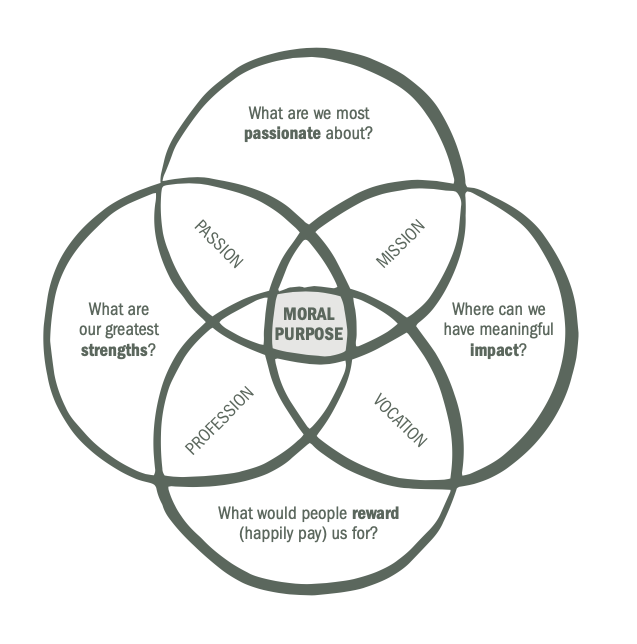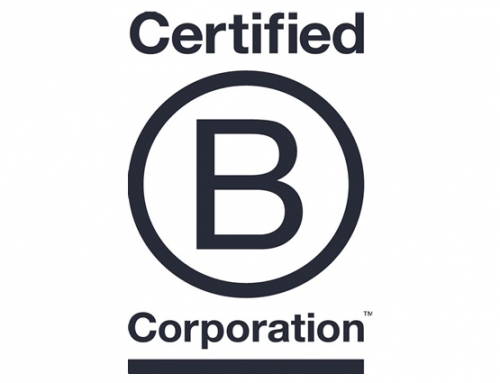There is much talk about purpose in business these days, but what does it mean?
In short, your moral purpose should be greater than the products you make or the services you provide.
At the heart of establishing a wider moral purpose for your business is the recognition that doing good and making money are not incompatible.
Knowing what intrinsically motivates your people, what you’re built to do better than anyone else, and where you can deploy that passion and talent to serve a need or solve a problem in the world is extremely powerful.
This matrix is from the book Conscious Capitalism Field Guide (Sisodia, Henry, Eckschmidt) and provides an excellent framework for establishing where your moral purpose is or should be.


By answering these questions diligently and honestly, a company can get considerably closer to defining its moral purpose and working out what specific actions are needed to enact it.
Another good question to ask yourself is “How do we want the world to change as a result of what we do?“.
Be sure to include employees. This will ensure future buy-in and guard against dilution, or fizzle out, as your purpose permeates through the business (see Part 2.9 of The Ethical Business Book).
Also involve customers (and other relevant stakeholders). Find out what is important to them, and how this fits with your purpose-led strategy (see Part 3.4 of The Ethical Business Book).
CAUTION:
If this is simply used to boost a brand image or to attain a short-term goal, then the impact will also be short-lived.
And remember, purpose without performance = PR.





